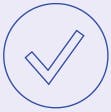- “The Way We Do Philanthropy” Guide: distributed in 2021,this guide specifies the rules surrounding providing Philanthropy in compliance with ethical principles, the Code of Ethics and the Group’s internal standards.
- “Responsible Lobbying Policy”: distributed in 2021, this policy specifies the responsible lobbying commitments and how they should be implemented.
- “The way We Work with Scientists and Healthcare Professionals” Guide helps the Group’s employees to work with these third parties in an ethical manner.
Corruption prevention measures implemented within the Group
| Group-level risk assessment |
The risk of corruption is included in the Group risk assessment. Following the update in 2020, which used a more robust methodology, the Group has produced 93 corruption risk maps in 75 countries. A tool also enables Country Managers to assess and analyse possible local ethical risks (including corruption) and to take the necessary prevention measures. |
|---|---|
| Specific Human Resources procedures | In the annual appraisal system for all employees, overall performance includes the employee’s achievements in compliance with the Code of Ethics and the Group’s ethical principles. |
|
L’Oréal’s “Speak Up” policy |
This policy enables employees to express any concerns they may have, particularly with regard to corruption, via a secure website or directly to the Group’s Chief Ethics, Risk and Compliance Officer. Any allegation raised in good faith is examined in detail. In the event of non-compliance with the corruption prevention policy, corrective measures are taken, which may include disciplinary action. The whistle-blowing line was opened to employees in 2008, and then to stakeholders in 2018. |
| Training | A compulsory online training programme on the prevention of corruption, available in 18 languages, has been rolled out in all countries. As at 31 December 2022, this training had been received by 85%of the employees concerned. In accordance with L’Oréal’s risk mapping, specific training courses for the staff most exposed to the risk are developed and deployed within departments and entities. |
|
Control and assessment of measures and procedures dedicated to the prevention of corruption  |
The Group’s Internal Control process provides for control procedures on operational activities, in particular for the separation of tasks. Moreover, accounting controls for the prevention of corruption are performed periodically. The implementation of the corruption prevention programme is part of the Internal Control self‑assessment process rolled out in operational entities. L’Oréal’s Internal Audit teams are particularly vigilant in this respect. Corruption risks are systematically reviewed during audit assignments, through individual interviews and specific checks. These interviews are conducted separately with the Country Manager and the Administrative and Financial Director. They give rise to an individual report reviewed and signed by these latter persons. |
| Due diligences prior to proposed acquisitions | A procedure specific to corruption risks integrates appropriate and proportionate verifications at the different steps of the acquisition process. Responses to the ethics questionnaire submitted to target companies are intended to identify whether corruption risk prevention has been taken into account by the companies, and to prepare for integration, if appropriate. |
| Third-party due diligences | The third-party management process (customers/suppliers) includes corruption risk. An assessment of corruption risks is conducted on the Group’s third parties. Appropriate verifications are implemented, which rely primarily on a dedicated tool and risk analysis guide. A specific guide has been made available to employees concerning relationships between intermediaries and public authorities. |
A commitment shared with the Group’s partners
L’Oréal shares its commitment to combating corruption with its business partners. Compliance with the law is included in the Group’s general terms of purchase, general terms of sale and the new version of the Mutual Ethical Commitment Letter.
L’Oréal reserves the right to end any relationships with business partners who fail to comply with anti-corruption laws.
A recognised approach
L’Oréal was recognised for the 13th time as one of the“World’s Most Ethical Companies” by the Ethisphere Institute.
